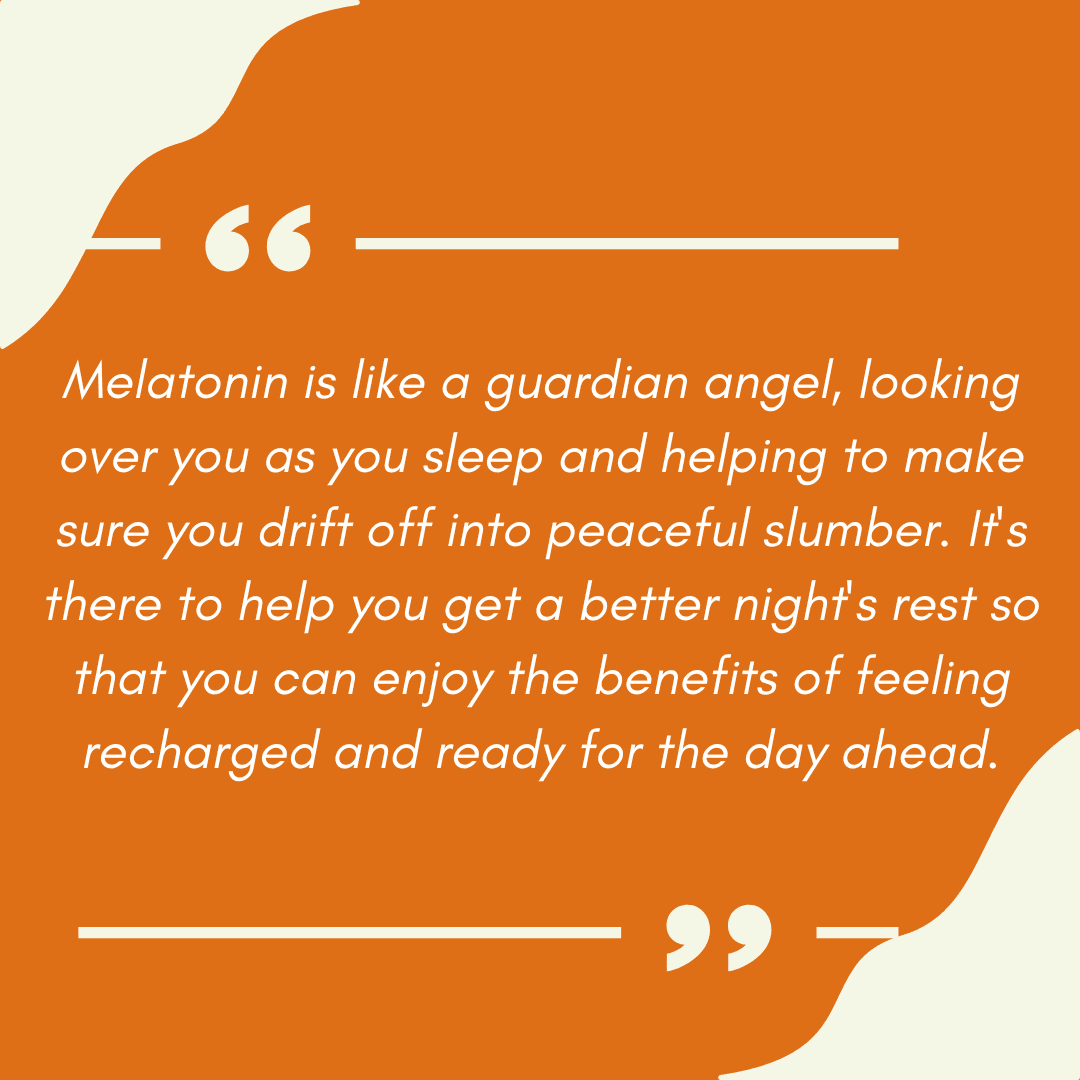Melatonin, a hormone produced by the pineal gland in the brain, plays an important role in regulating sleep-wake cycles and providing health benefits. Studies have shown that melatonin helps to improve sleep quality and can help reduce the effects of jet lag. Additionally, research suggests that melatonin has antioxidant and anti-inflammatory properties which may provide health benefits such as reducing oxidative stress, improving blood pressure, and potentially managing diabetes.

In addition to its potential therapeutic effects on sleep disorders, melatonin has also been studied extensively for its potential health benefits when taken as a dietary supplement. Some studies suggest that melatonin may offer protection against cancer by inhibiting tumor growth and suppressing cell damage caused by oxidative stress. In addition, some evidence suggests that it can help reduce the risk of heart disease as well as improve cardiovascular health by increasing antioxidant levels in the body.
Taking Melatonin Supplements
Melatonin supplementation has also been shown to be effective in treating a variety of sleep disorders including insomnia, delayed sleep phase syndrome, and circadian rhythm disturbances. Further studies have indicated that melatonin treatment may also be beneficial for people suffering from short term memory loss or disorientation due to aging or other medical conditions.
Moreover, melatonin has been studied for its effects on skin health as well as its ability to induce a feeling of relaxation and reduce anxiety levels. In particular, research indicates that long-term use of supplements containing this hormone may slow down signs of aging such as wrinkles and age spots while providing relief from skin inflammation caused by sun exposure or acne breakouts.
Overall, numerous clinical trials have shown promising results with regards to the effectiveness of melatonin supplements in providing various health benefits ranging from improved sleep quality to protection against cancer and cardiovascular diseases. It is important to note however that while many people report positive experiences with taking these products it is still necessary to consult with a healthcare provider before starting any treatment regimen involving melatonin supplements.
Production of Melatonin is essential for healthy sleep and rest, particularly in children with neurodevelopmental disorders such as autism spectrum disorder. The Academy of Sleep Medicine recommends that melatonin be considered as a treatment option primarily for those with primary insomnia, delayed sleep phase syndrome, or other specific sleep issues. A systematic review and meta-analysis published in the Journal of Pineal Research found that doses of 0.3 to 5mg of exogenous melatonin taken 30 minutes before bedtime can help people fall asleep faster and improve total sleep time.
The Food and Drug Administration (FDA) has approved melatonin for use as a dietary supplement, although the safety and efficacy of this supplement have not been fully established yet. As such, it is generally recommended that healthcare providers advise their patients on the appropriate dose and administration of melatonin before its use. Randomized controlled trials suggest that prolonged-release melatonin may be beneficial in reducing symptoms associated with an autism spectrum disorder in children as well as decreasing sleep disturbances associated with breast cancer in adults.
Not only does melatonin play an important role in regulating circadian rhythms and inducing sleep, but it also serves many other functions beyond just aiding people in falling asleep. For example, recent studies suggest that melatonin has anti-inflammatory properties which could contribute to weight loss or reduce diabetic symptoms. Furthermore, research has suggested that it may reduce reactive oxygen species which would confer neuroprotection against age-related cognitive decline.
In conclusion, there are numerous potential benefits associated with taking a low dose of melatonin before bedtime; however, it’s important to consult your health care provider first before taking any medications or supplements as well as read labels carefully when purchasing any products containing melatonin on your own. Furthermore, natural sources of melatonin should not be overlooked either: exposure to daylight during the day helps stimulate production while avoiding bright lights at night can help increase levels naturally occurring before bedtime too.
Melatonin is a hormone secreted by the pineal gland in our bodies, which helps to regulate our sleep-wake cycles. A natural remedy for sleep difficulties and disorders, melatonin has been found to have numerous other benefits as well. Here are some interesting facts and uses of melatonin that may surprise you:
Melatonin is known to have anti-inflammatory properties, meaning that it can be used to treat primary illnesses such as asthma or arthritis. It can also be used to improve the symptoms of fatigue caused by chronic illnesses.
A randomized controlled trial found that melatonin administration could reduce the time taken for children with autism spectrum disorder to fall asleep by an average of two hours, compared to a placebo group.
Research suggests that melatonin production tends to decrease with age, making it increasingly difficult for older adults to get a full night’s rest. Thus, the use of a melatonin supplement may help elderly people maintain healthy sleep patterns and improve their quality of life.
Melatonin levels are influenced by light exposure, so even small changes in light intensity can affect your sleep cycle. This means that if you’re having difficulty sleeping at night due to artificial light exposure in the evening hours, taking a melatonin supplement could be beneficial.
Studies have shown that doses of 6–12mg per day are effective when taken over short periods and that prolonged release forms may increase efficacy while decreasing side effects associated with higher doses such as nightmares and dizziness.
The safety profile of melatonin is generally good, but caution should still be exercised when giving it to children or pregnant women as it may interact with other medications or hormones in their systems. Moreover, because different labels indicate different dosages for different age groups, it is important that you consult your doctor before self-medicating with supplements labeled “for adults only” or “for children only”.






